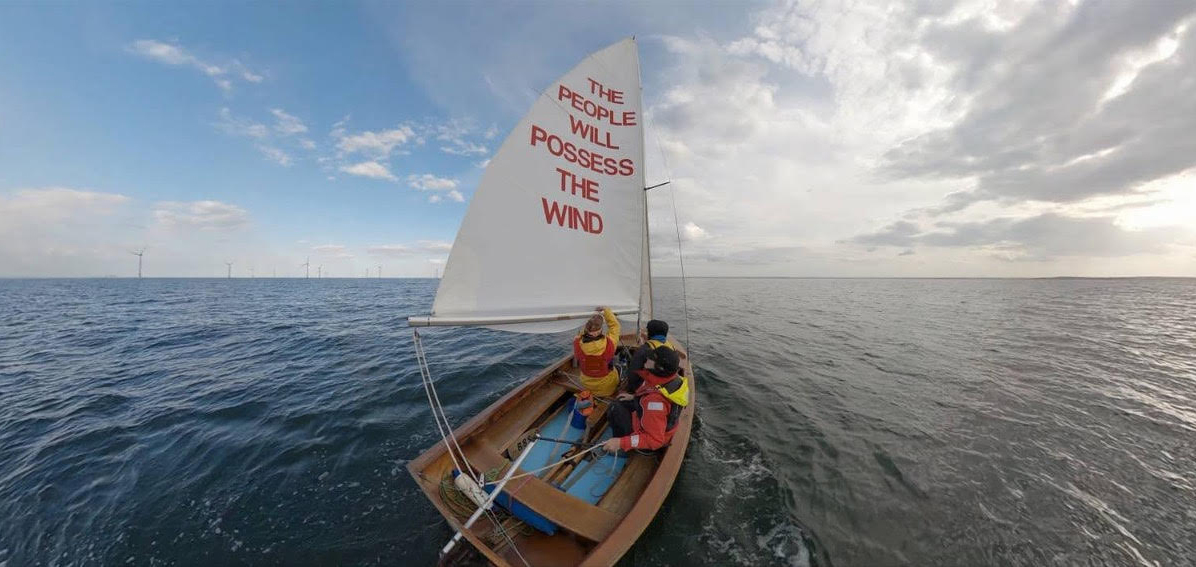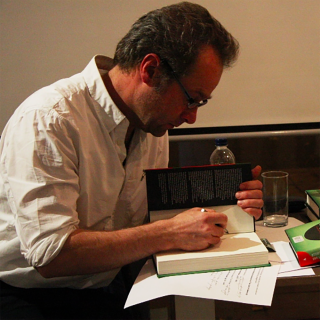Crude Britannia
This project coincides with the publishing of the book Crude Britannia (Pluto Press, May 2021), written by James Marriott of arts-activist group Platform, and former energy correspondent of The Guardian, Terry Macalister. The book takes the reader on a journey to the UK’s estuaries, from North East Scotland, Merseyside and South Wales to the Thames, telling the story of Britain's oil powered past and present, and its possible wind future.
Platform will bring to life the ecology and energy of the Thames Estuary: with a past as a factory of oil and gas, the future as a place of wind power.
A map showing the wider Thames Estuary and its former, current and future energies can be viewed at four venues across the Estuary: the Lobster Smack, Canvey Island; the Three Daws, Gravesend; the Admiral’s Arm, Queenborough; and the Royal Brasserie, Ramsgate.
You can also join James Marriott and Terry Macalister for events on all four Saturdays of the festival. For our launch weekend, James is one of four curators who have put together two packed days of content, and on the following three Saturdays, James hosts sessions which bring together live readings, discussions with speakers on the Estuary's energy and its relationship with Algeria and Nigeria. On each weekend newly commissioned film of the estuary by artist-sailor Richard Houguez will be released. The work is shot on a small sailing boat, Isis, as she explores the Estuary under a new sail emblazoned with the words The People Will Possess the Wind.
Live events
Sat 22 May - 11:30-12:45 - The Estuary and the Legacies of Oil
Sat 22 May - 13:30-14:45 - The Estuary, the Climate and the Future of Energy
Sat 29 May - 14:00-15:00 - The Estuary’s empire of oil
Sat 5 June - 14:00-15:00 - The Estuary’s empire of gas
Sat 12 June - 14:00-15:00 - The Commonwealth of Wind
All events are viewable from our LIVE page.
The energy systems of the past eighty years – refineries, gas terminals, pipelines, bunker barges, fuel depots, petrol stations, airports – have been engines of private wealth. The energy systems of the coming age – wind farms and solar arrays – are currently owned by private capital. How can the people of the Estuary come to possess the sea’s space, the wind’s force and the sun’s passage that is their common right? Possess it imaginatively, emotionally and perhaps legally, establishing the Commonwealth of Winds?
The necessity for such a shift is demanded by climate change, which is itself changing the Estuary – increasing the river’s spates, the tide’s floods, the wind’s storms and the sea’s height. Tackling climate change will impact on all, will need to be the responsibility of all, and should empower all. The work of addressing it needs to be intertwined with social justice in South Essex and North Kent, but also in those distant ‘elsewheres’ upon which we have depended (and still depend) for energy such as Algeria and Nigeria.

 maybe later
maybe later









